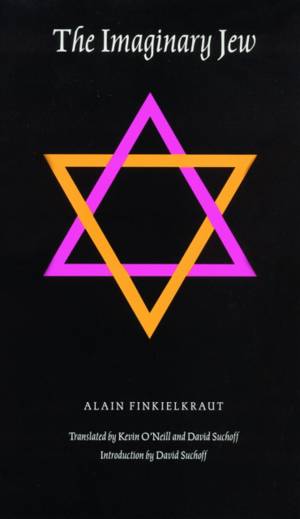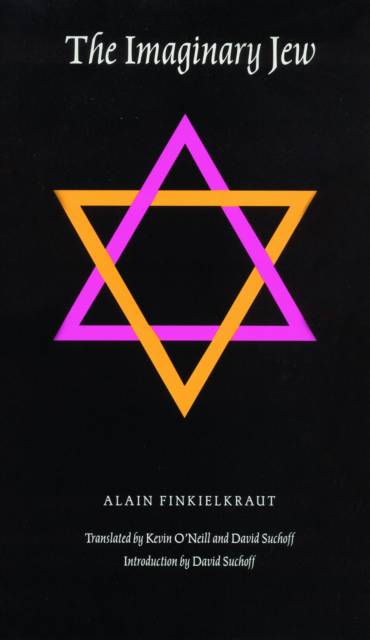
- Afhalen na 1 uur in een winkel met voorraad
- Gratis thuislevering in België vanaf € 30
- Ruim aanbod met 7 miljoen producten
- Afhalen na 1 uur in een winkel met voorraad
- Gratis thuislevering in België vanaf € 30
- Ruim aanbod met 7 miljoen producten
Zoeken
Omschrijving
The Holocaust changed what it means to be a Jew, for Jew and non-Jew alike. Much of the discussion about this new meaning is a storm of contradictions. In The Imaginary Jew, Alain Finkielkraut describes with passion and acuity his own passage through that storm.
Finkielkraut decodes the shifts in anti-Semitism at the end of the Cold War, chronicles the impact of Israel's policies on European Jews, opposes arguments both for and against cultural assimilation, reopens questions about Marx and Judaism, and marks the loss of European Jewish culture through catastrophe, ignorance, and cliché. He notes that those who identified with Israel continued the erasure of European Judaism, forgetting the pangs and glories of Yiddish culture and the legacy of the Diaspora.
Specificaties
Betrokkenen
- Auteur(s):
- Vertaler(s):
- Uitgeverij:
Inhoud
- Aantal bladzijden:
- 201
- Taal:
- Engels
- Reeks:
Eigenschappen
- Productcode (EAN):
- 9780803268951
- Verschijningsdatum:
- 1/04/1997
- Uitvoering:
- Paperback
- Formaat:
- Trade paperback (VS)
- Afmetingen:
- 181 mm x 216 mm
- Gewicht:
- 240 g

Alleen bij Standaard Boekhandel
+ 42 punten op je klantenkaart van Standaard Boekhandel
Beoordelingen
We publiceren alleen reviews die voldoen aan de voorwaarden voor reviews. Bekijk onze voorwaarden voor reviews.








